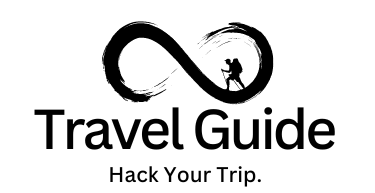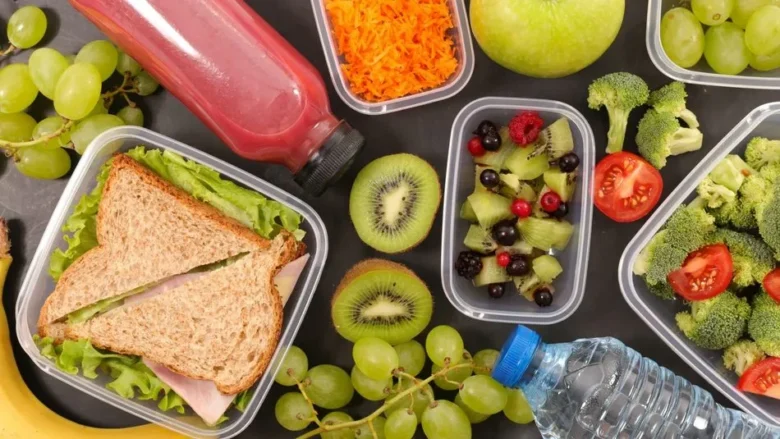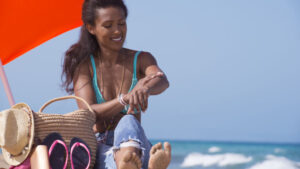To ensure that dehydration does not set in, it is important to drink lots of water during your travels. Incorporate healthy eating habits and avoid foods prone to becoming contaminated with germs into your daily meals and routine. Make sure you wash your hands regularly – especially after using the toilet or touching public surfaces – especially after using common facilities like restrooms or touching surfaces around you.
Before leaving home, make sure to visit either your healthcare provider or travel health clinic to receive necessary vaccinations for your destination.
Always Sleep Well:
The sleep pattern of a traveler may be affected and this can have adverse effects on his/her physical and mental health. Get enough sleep, by aiming at getting 7-8 hours per night throughout the trip.
Eat food that is good for sleep (like poultry, fatty fish such as salmon or tuna, bran flakes, whole grain crackers) while avoiding caffeinated drinks or foods will help you unwind before bedtime. It is also recommended to opt for beverages such as water and low-sugar tea instead of expensive lattes and snacks consisting of fiber-rich-protein rich foods like apple slices spread with peanut butter or celery sticks!!
With careful planning, you can maintain all your wellness goals while traveling; this way you can still achieve your fitness goals even though you are on vacation! In anticipation of another round of everyday life when we return home more relaxed and refreshed.
Have a Good Diet:
Eating a balanced diet is important at all times but particularly so when one is travelling. Too much carbohydrates consumption by budget travellers may leave them susceptible to illness; fruits, vegetables and lean protein sources can boost the immune system reducing chances of falling sick while on the move. In addition, taking super vitamins may give added support during travel too.
While traveling it’s fun to experiment with new cuisines provided one watches the quantities consumed. Go for freshly cooked meals where possible plus remember to sanitize your hands frequently when you touch surfaces or even eat, should there be no soap and water then use hand sanitizers with no less than 60% alcohol concentration; this also comes in handy since it is given as a precautionary measure to have over the counter first aid items such as ibuprofen, allergy medications and motion sickness tablets.
Keep Hydrated:
Hydration is important for our overall health and wellbeing, but is even more vital during travel. The common side effect of travelling is dehydration which could be induced by factors such as flying, excessive workouts, high temperature or alcohol intake.
This means that hydration is even more essential for travel health because water helps keep us healthy by supporting our immune systems to fight disease-causing pathogens found in public places.
Add Pedialyte electrolyte powder as part of your carry-on bag – it has glucose and electrolytes scientifically combined (balanced) – so that you can maintain fluids during air travel/layovers. Additionally, take plenty of water and snack on hydrating foods like fresh fruits and vegetables all through the journey. Remember to take breaks and pace yourself throughout your trip, preventing unnecessary exertion.
Don’t Let Mosquitoes Get to You
Protecting skin against mosquito bites will help you avoid diseases like Chikungunya, Dengue Fever Yellow Fever and Malaria while sunbathing on holiday.
If outside, wear long trousers, shirts with long sleeves and closed shoes; use an EPA-registered insect repellent according to label instructions; do not go out when mosquitoes are most active in the twilight or early morning hours; use screened windows and doors; if camping unscreened accommodations or accommodations without windows/doors a mosquito net may provide further protection.
To determine whether or not your destination country is at risk of mosquito-borne diseases, consult NaTHNaC’s country information pages. Discuss immunizations or medicines available for prevention of mosquito-borne infections with your healthcare provider or travel clinic 4-6 weeks before travel.
Maintain Proper Hygiene:
While travelling, good hygiene must be observed all the time with special attention being paid to regular handwashing which helps in fighting germs thus enhancing one’s wellbeing. Always carry hand sanitizer just in case soap and water are not available.
Carrying a hat, sunglasses and sunscreen with SPF 30 or more when you go travelling can protect against burns during cloudy weather – UV rays can harm your skin even on rainy days!
Likewise maintaining mental health is important too as you move around. Stress-management techniques together with staying close to friends and family members help keep one healthy throughout the journey abroad. Register for Smart Traveler Enrollment Program (STEP) so that you will always stay updated about any health issues or dangers waiting for you in your final destination.
Stay Away from Animals:
When exploring new places it’s important to remember that as exciting as traveling may be, there are animals present. They might have infectious diseases or cause injuries such as rabies. When meeting unknown animals it is better to keep away from them and don’t touch their feces; if a meeting happens, be sure to wash any bites or scratches immediately with soap and water before any other form of medical help if necessary but most especially in the case of rabies.
An impregnable immune system can be built through active healthy travel protecting you from germs and illnesses that might otherwise emerge. Sleep, diet, hydration and relaxation are essential elements towards maintaining good health while travelling.
Be Cautious Where Water is Concerned:
When traveling abroad, water safety should always take priority as drowning is one of the major causes of American deaths overseas. So travelers must adhere to recommended practices and swim or boat with great caution around bodies of water.
Also as certain countries have a higher risk for food poisoning it is worth noting that food and water safety remains a priority when travelling outside our country. When eating foods or drinking liquids such as tap water or ice cubes which may contain bacteria it is important to rely on purified or bottled water only.
A trip should be enjoyable while at the same time safe and healthy by keeping hydrated, practicing good hygiene tips as well as taking care of mental state without getting sick.



